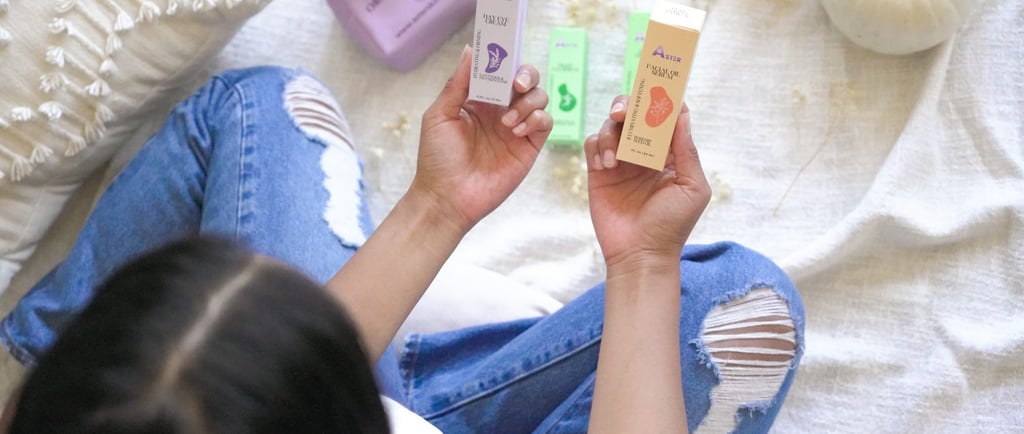Unveiling Middle Eastern Beauty Rituals: Timeless Traditions with a Modern Twist
ORGANIC SKINCAREWELLNESSRITUALMIDDLE EASTHERN
Maryam Jamalzadeh
10/9/20255 min read


The Historical Context of Middle Eastern Beauty Rituals
The history of beauty rituals in the Middle East is etched in the region's cultural heritage, showcasing a rich tapestry of practices that have evolved over the centuries. Dating back to ancient civilizations, such as the Egyptians and Mesopotamians, beauty rituals were often intertwined with spiritual beliefs and societal norms. These early practices were not merely about aesthetics; they were deeply rooted in health and wellness, illustrating a holistic understanding of beauty that encompassed body, mind, and spirit.
Throughout history, natural ingredients unique to the region played a pivotal role in these beauty practices. The use of oils, herbs, and floral extracts, which were abundant in the Middle East, highlighted the community's resourcefulness and deep connection to their environment. Ingredients like argan oil, rosewater, and dates were not only celebrated for their nourishing qualities but were also integral components of traditional remedies and rituals, emphasizing the practical application of beauty standards in promoting overall well-being.
Moreover, the significance of beauty within Middle Eastern societies has often transcended superficial appearances. It is seen as an expression of personal dignity and a reflection of inner health. Recognizing beauty as an avenue for holistic well-being rather than a mere aesthetic pursuit has allowed Middle Eastern beauty rituals to flourish, bridging the gap between ancient traditions and modern practices. This deep-rooted understanding continues to influence contemporary approaches to beauty in the region.
Key Ingredients and Practices:
Nature's Bounty Unveiled
Middle Eastern beauty rituals have long been celebrated for their harmonious blend of natural ingredients and traditional practices that harness the power of nature. Among these, rosewater, argan oil, and honey stand out as quintessential elements that not only enhance beauty but also embody the region's rich cultural heritage.
Rosewater, derived from the steam distillation of rose petals, is a versatile ingredient revered for its soothing and hydrating properties. Used as a toner, it helps balance the skin's pH, reduces redness, and provides a refreshing lift. Additionally, rosewater can be incorporated into masks or mixed with other skincare products to amplify their effectiveness. Its floral scent adds an aromatic element that enriches the beauty experience, making it a favored ingredient in both traditional and modern routines.
Argan oil, often referred to as "liquid gold," is extracted from the nuts of the argan tree native to Morocco. This oil is rich in fatty acids and Vitamin E, offering profound moisture and nourishment for the skin and hair. As a moisturizer, argan oil penetrates deeply, promoting elasticity and reducing the appearance of fine lines. In haircare, it functions as a deep-conditioning treatment and helps tame frizz while adding a luminous shine. Easily integrated into daily routines, users can apply argan oil directly or mix it with their favorite products for added benefits.
Honey, known for its natural antibacterial and antioxidant properties, is a staple in Middle Eastern beauty practices. It serves as a humectant, drawing moisture to the skin, making it an excellent ingredient for hydration. Honey can be applied in face masks or used to soothe and heal various skin irritations. Its thick texture makes it an ideal base for combining with other ingredients, creating nourishing treatments that reflect ancient wisdom tailored for modern use.
The beauty rituals of the Middle East highlight the efficacy of natural ingredients and practices that can effortlessly be integrated into contemporary skincare and haircare routines. By harnessing the power of rosewater, argan oil, and honey, individuals can enjoy the benefits of these timeless traditions while maintaining simplicity in their beauty regimen.
Modern-Day Adaptation:
Integrating Rituals into Your Routine
In the hustle and bustle of contemporary life, integrating Middle Eastern beauty rituals into your daily routine may seem daunting. However, with some thoughtful adjustments, these ancient practices can effortlessly enhance modern self-care routines, providing moments of tranquility and mindfulness. One of the first steps is simplifying the rituals to fit a busy schedule while retaining their essence.
Consider starting your day with a facial cleansing ritual inspired by traditional levantine practices. Use a gentle cleanser infused with rosewater, a staple in Middle Eastern skincare, renowned for its soothing and hydrating properties. Alternatively, create a quick DIY scrub by mixing sugar with olive oil and a few drops of essential oils. This process not only exfoliates the skin but also offers a sensory experience, allowing you to connect with the natural elements of these rituals.
Incorporating aromatic oils, such as argan or sesame, into your nightly skincare routine can emulate the luxurious oil application often practiced in Middle Eastern beauty. Spend just a few moments massaging the oil into your skin, allowing yourself to unwind and focus on self-care. Calming scents can promote mindfulness, encouraging relaxation and an enhanced connection with one's body.
Additionally, bringing the ritual of herbal teas into your day can serve as a gentle reminder to pause and indulge in self-care. Try a blend of chamomile and mint, inspired by traditional Middle Eastern flavors. This not only nourishes the body but also creates a soothing environment that emphasizes the importance of mindfulness in beauty routines.
Ultimately, integrating these rituals into your life doesn’t require significant time or effort. Rather, it is about transforming daily moments into opportunities for connection and self-reflection. With these practices, you find peace while honoring the rich traditions that contribute to beauty across cultures.
The Spiritual Essence:
Beauty as a Holistic Experience
Middle Eastern beauty rituals have long been intertwined with spiritual beliefs, emphasizing that beauty transcends mere aesthetics. In this region, the practice of beauty involves a myriad of rituals that reflect a holistic approach to self-care. The essence of these practices lies not only in enhancing physical appearance but also in promoting mental and emotional wellness. The application of natural oils, the use of fragrant spices, and the rituals surrounding skincare can serve as meditative acts, allowing individuals to pause, reflect, and reconnect with their inner selves.
Engaging in beauty rituals is a powerful means of self-expression and self-love. The simple act of applying a sumptuous oil or a rich face mask transforms into a moment of mindfulness. These rituals cultivate a space where individuals can tune into their emotional state, fostering a sense of calm and relaxation. As the layers of the day peel away, the application of beauty products becomes an opportunity for introspection and personal connection. Such moments of care can significantly boost one’s confidence and promote inner peace, reinforcing the idea that beauty involves nurturing the soul as much as the body.
Furthermore, these practices provide an avenue for individuals to embrace self-acceptance. They invite a deeper exploration of one’s identity and heritage, allowing a celebration of uniqueness in one’s delicate skin or hair. As each layer of beauty is applied, it represents more than cosmetic enhancement; it symbolizes care for oneself. Middle Eastern beauty rituals, therefore, transcend the surface, embodying a sacred connection between the physical and spiritual. By embracing these timeless traditions interwoven with a modern twist, individuals can forge a deeper relationship with themselves, ultimately enriching their journey toward well-being and self-appreciation.
Get in touch
hello@asterskincare.com
